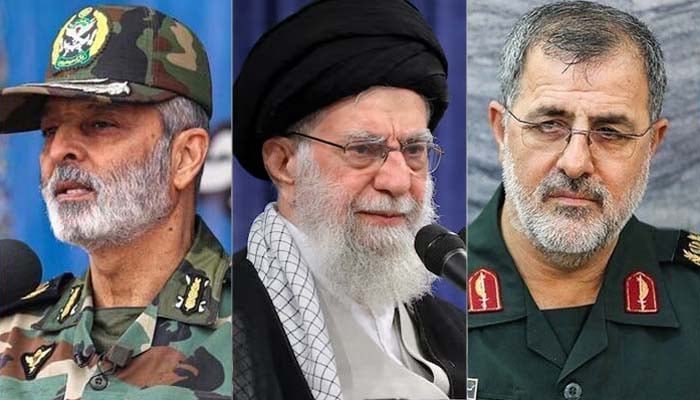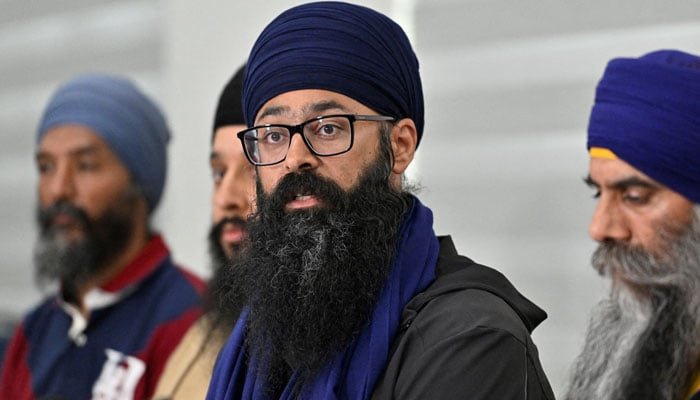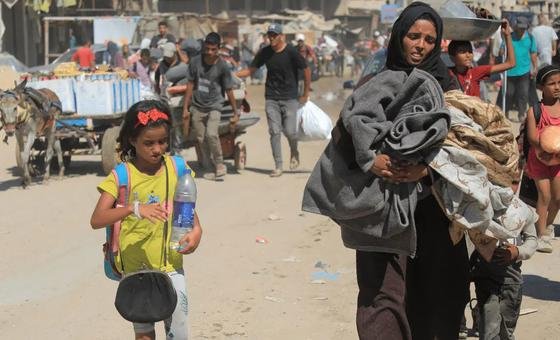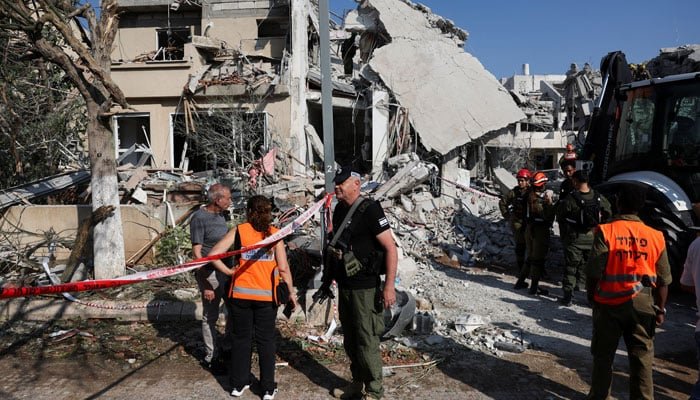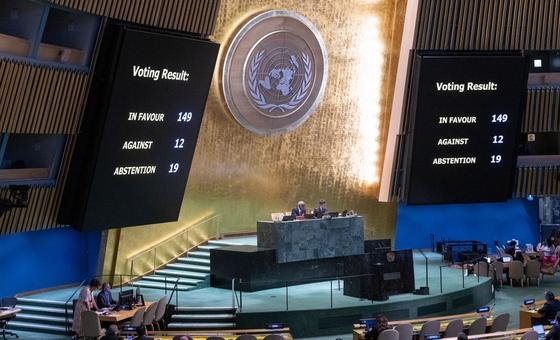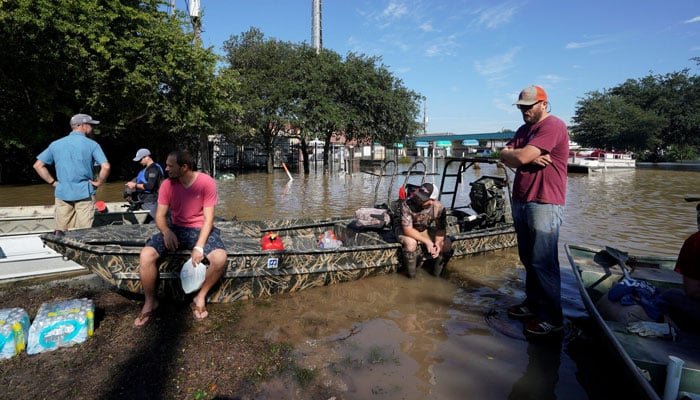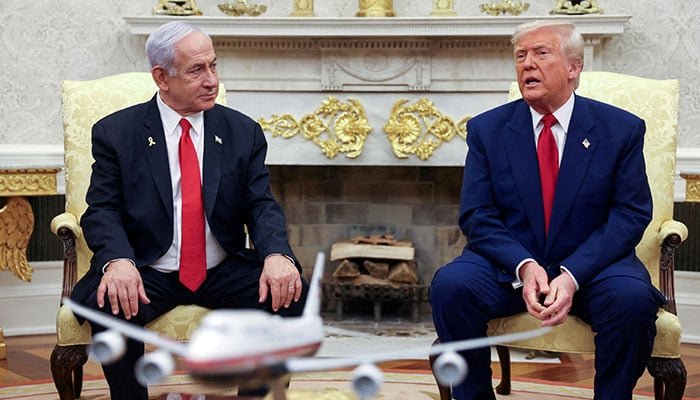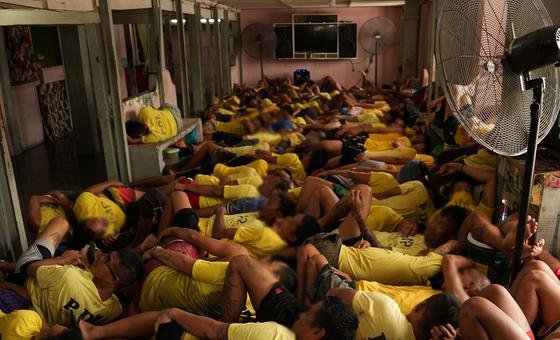In response to Israeli airstrikes that killed several senior military officials and nuclear scientists, Iran’s Supreme Leader Ayatollah Ali Khamenei has named new commanders to key positions within the Revolutionary Guards and armed forces, vowing continuity in the country’s defence strategy.
Iranian media and witnesses reported explosions, including at the country’s main uranium enrichment facility at Natanz, while Israel declared a state of emergency in anticipation of retaliatory missile and drone strikes.
At least 20 senior Iranian commanders, including the head of the Revolutionary Guards, Aerospace Force Commander Amir Ali Hajizadeh, and scientists, were killed in strikes, two regional sources told Reuters.
Following the confirmation, Ayatollah Khamenei swiftly appointed new Revolutionary Guards and armed forces chiefs to replace those killed.
In separate decrees, Khamenei named Major General Mohammad Pakpour to replace Salami as IRGC commander and Major General Abdulrahim Mousavi to replace Mohammad Bagheri as chief of the armed forces general staff.
Major General Ali Shademani was appointed as the commander of the Khatam al-Anbia Headquarters.
Below is a list of the commanders and scientists killed:
Mohammad Bagheri: A former IRGC commander, Major General Bagheri was the chief of staff of Iran’s armed forces from 2016.
Hossein Salami: He was the commander-in-chief of Iran’s elite Revolutionary Guards Corps, or IRGC. Iran’s Supreme Leader, Ayatollah Ali Khamenei, appointed Salami, who was born in 1960, as head of the IRGC in 2019.
Gholamali Rashid: Major General Rashid was head of the IRGC’s Khatam al Anbia headquarters. He previously served as deputy chief of staff of the Iranian Armed Forces.
Amir Ali Hajizadeh: He was the head of the Revolutionary Guards’ Aerospace Force. Israel has identified him as the central figure responsible for directing aerial attacks against its territory.
Ali Shamkhani: He was one of Iran’s most influential politicians and a close confidant of Ayatollah Khamenei. He had been overseeing nuclear talks with the United States as part of a committee named by the supreme leader to direct the negotiations.
Nuclear Scientists
Fereydoun Abbasi: Abbasi, a nuclear scientist, served as head of Iran’s Atomic Energy Organisation from 2011 to 2013.
Mohammad Mehdi Tehranji: He was a theoretical physicist and the president of the Islamic Azad University in Tehran.
Iranian news agency also identified four other slain scientists as:
Abdolhamid Minouchehr: holder of a PhD in nuclear engineering, who served as dean of the nuclear engineering faculty at Shahid Beheshti University and conducted extensive research on improving the efficiency and safety of nuclear plants.
Ahmad Reza Zolfaghari: professor of nuclear engineering at Shahid Beheshti University.
Amir Hossein Faghihi: who belonged to the engineering faculty at Shahid Beheshti University and previously served as vice president of the AEOI and head of the Nuclear Science and Technology Research Institute.
Motallebzadeh: a nuclear scientist who was targeted and killed along with his wife.
‘Will respond decisively’
In a separate development, Iran’s Foreign Minister Abbas Araghchi wrote a letter to the United Nations, describing the attack as a “declaration of war” and called on the UN Security Council to immediately address the issue, the Iranian foreign ministry said.
Araghchi requested the meeting in a letter to the 15-member body, saying Israel “has now crossed every red line, and the international community must not allow these crimes to go unpunished”.
“Iran reaffirms its inherent right to self-defence as enshrined in Article 51 of the UN Charter and will respond decisively and proportionately to these unlawful and cowardly acts.”
Article 51 of the UN Charter covers the individual or collective right of states to self-defence against armed attack.
‘Middle East flights halted’
Meanwhile, Global airlines cancelled flights to Tel Aviv, Tehran and other Middle East destinations, or rerouted planes, as airspaces shut following Israeli strikes on Iran.
Israel, Iran, Iraq, Jordan and Syria closed their airspaces after Israel hit military and nuclear facilities in Iran. Israel said Tehran launched drones in retaliation.
Air India’s New Delhi-Vienna and Mumbai-London flights were about to enter Iranian airspace when Israel launched its attack, forcing the planes to turn back to their origin, according to aircraft tracker Flight Aware.
Its London-New Delhi flight had just entered Iranian airspace and was rerouted over Iraq before arriving in India one hour late, according to Flight Aware.
Air India diverted or called back a total of 16 flights between India and London and cities in Canada and the United States “due to the emerging situation in Iran”.
Emirates, the Middle East’s largest airline, cancelled flights to and from Iraq, Jordan, Lebanon and Iran after Israel launched the strikes.
Qatar Airways, the country’s national carrier and one of the Middle East’s largest, said it had “temporarily cancelled flights to Iran and Iraq due to (the) current situation in the region”.
Air France said it was suspending its flights to and from Tel Aviv “until further notice” following the closure of Israeli airspace.
“Air France is closely monitoring the situation in the Middle East in real time,” a spokesman for the French airline told AFP, adding that “the safety of its customers and crews is its absolute priority”.
Russia’s aviation authority Rosaviatsiya instructed Russian airlines not to fly “in the airspace of Israel, Jordan, Iraq and Iran” or use airports in Israel and Iran.
It said the restrictions will stay in place until June 26 or until further notice.
German airline group Lufthansa suspended flights to and from Tehran until July 31. It also extended the suspension of Tel Aviv flights for the same period.
Swiss airline, which is owned by Lufthansa, suspended its Tel Aviv flights until October 25 while those to Beirut were suspended until the end of July.
In the United Arab Emirates, Abu Dhabi airport warned “flight disruptions are expected through today (Friday)” as a result of the Israeli strikes.
Dubai’s airport also announced flight delays and cancellations due to the closure of airspaces in Iran, Iraq and Syria.

